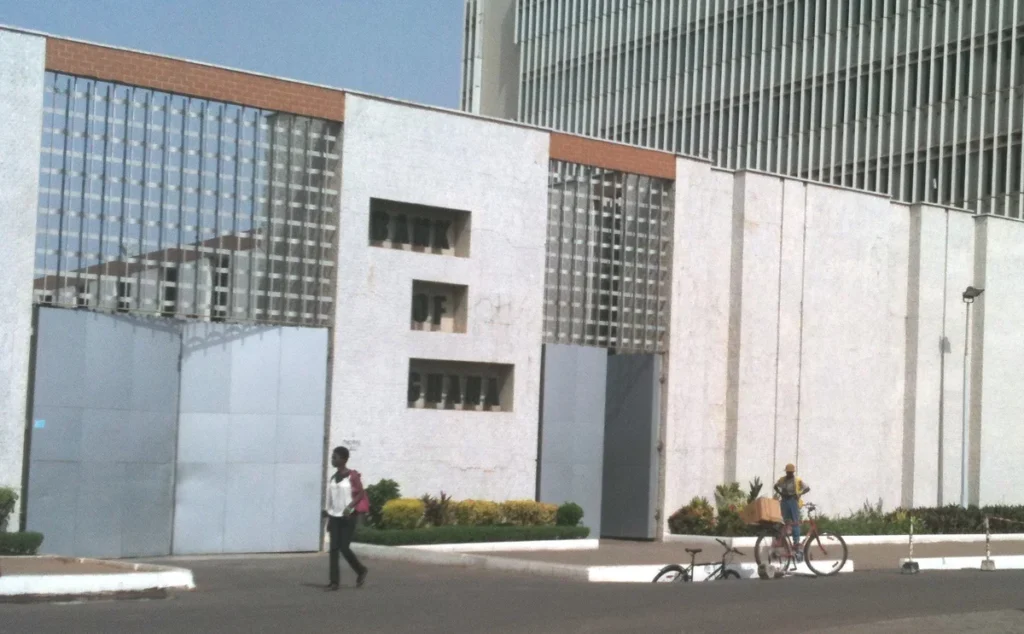
The Bank of Ghana (BoG) has significantly reduced its operating loss in 2024 to GH¢9.49 billion, marking an improvement from the GH¢13.23 billion recorded in 2023 and a dramatic turnaround from the staggering GH¢60.8 billion loss suffered in 2022.
Despite the reduced losses, the central bank’s equity remains deeply in the negative, standing at approximately -GH¢61.3 billion—a lingering reflection of the economic turbulence Ghana has faced in recent years.
Encouragingly, the BoG’s 2024 financial statements, released on June 5, 2025, revealed a net comprehensive profit of GH¢4.02 billion after accounting for valuation changes. This signals a slow but steady path toward financial stabilization, although officials acknowledge that full recovery is still a work in progress.
The primary cause of the 2024 loss was the GH¢8.60 billion incurred through interest payments linked to monetary policy efforts, including tools used to combat inflation and support currency stability. Additional pressures came from exchange-rate fluctuations and revaluation losses totaling GH¢3.49 billion, which included a GH¢1.82 billion impact from the now-defunct Gold-for-Oil initiative. The cost of issuing new currency, totaling GH¢1.01 billion, also contributed to the year’s deficit.
Notably, much of the central bank’s prior financial damage stemmed from the 2022 Domestic Debt Exchange Programme, which involved forced reductions in the value of government securities, resulting in the unprecedented GH¢60.8 billion loss that year.
Experts like economist Prof. Godfred Bokpin have stressed the importance of monetary stability over erratic currency movements, explaining that unpredictable swings—whether appreciation or depreciation—are detrimental to both business environments and effective central banking.
Globally, it is not uncommon for central banks to operate with negative equity, as seen in countries like Israel, Chile, and the Czech Republic. However, prolonged losses can undermine a central bank’s independence and raise concerns about the need for government recapitalization or excessive money printing—both of which could hinder inflation control and erode public trust.
The BoG has suspended profit transfers to the national treasury, adding strain to public finances during an already delicate economic recovery. Nevertheless, officials are implementing corrective strategies such as discontinuing direct fiscal financing, enhancing operational efficiency, and preserving future earnings as part of a long-term rebuilding plan.
Ghana’s central bank joins a growing list of global monetary authorities that have posted massive losses in recent years. Institutions like the Swiss National Bank, the U.S. Federal Reserve, and the Reserve Bank of Australia have all faced steep deficits as a result of aggressive interest rate hikes and efforts to unwind post-pandemic monetary interventions.
While central bank losses often spark political debate, they are increasingly recognized as the cost of defending economic stability during times of crisis. The BoG’s gradual financial recovery represents a necessary step toward restoring confidence and fulfilling its core mandate.
FAQs – Bank of Ghana’s 2024 Financial Performance
1. Why did the Bank of Ghana record losses in 2024?
The central bank incurred GH¢9.49 billion in operating losses primarily due to high interest expenses from monetary policy tools used to control inflation and stabilize the cedi.
2. How does the 2024 loss compare to previous years?
The 2024 loss is an improvement from the GH¢13.23 billion in 2023 and a substantial recovery from the GH¢60.8 billion loss in 2022, which was largely due to the Domestic Debt Exchange Programme.
3. What is the current state of the Bank of Ghana’s equity?
Despite the improvement in losses, the BoG’s equity remains negative at approximately -GH¢61.3 billion, reflecting the financial strain from recent economic policies and events.
4. What caused the massive loss in 2022?
The GH¢60.8 billion loss in 2022 was mainly due to asset impairments from the Domestic Debt Exchange Programme, where government bond values were drastically reduced.
5. Did the Gold-for-Oil programme contribute to the losses?
Yes, exchange rate-related losses including the Gold-for-Oil programme amounted to GH¢3.49 billion, with GH¢1.82 billion directly linked to that initiative.
6. What steps is the Bank taking to recover financially?
The BoG is no longer financing the government directly, is improving internal efficiency, and is retaining profits to rebuild its capital base.
7. Can a central bank operate with negative equity?
Yes. Central banks like those in Israel, Chile, and the Czech Republic have done so. However, long-term negative equity can raise questions about independence and monetary credibility.
8. Has the BoG made any profits in 2024?
Yes. Despite the operating loss, the BoG recorded a net comprehensive profit of GH¢4.02 billion after accounting for valuation gains.
9. How do these losses affect the average Ghanaian?
While the BoG’s financials don’t directly affect consumers, they influence inflation control, interest rates, exchange rates, and overall economic confidence.
10. Is Ghana alone in facing such central bank losses?
No. Major central banks like the Swiss National Bank, the U.S. Federal Reserve, and the Reserve Bank of Australia have also reported substantial losses recently, often due to post-pandemic monetary adjustments.






